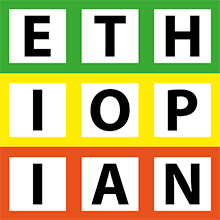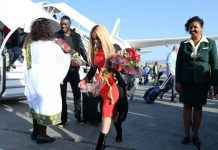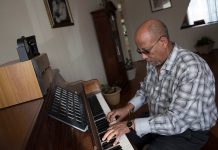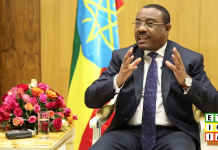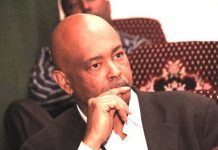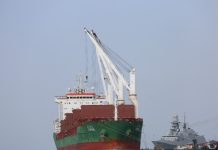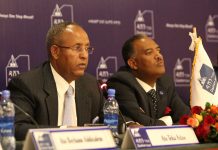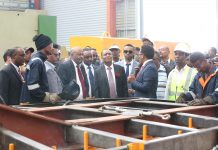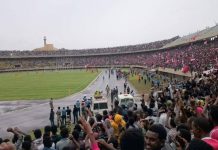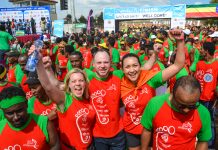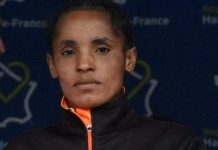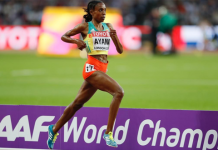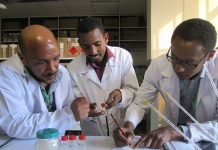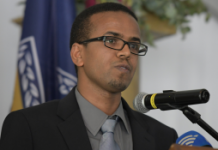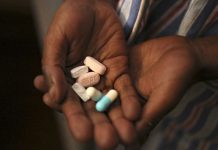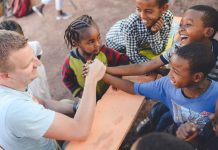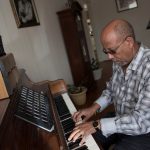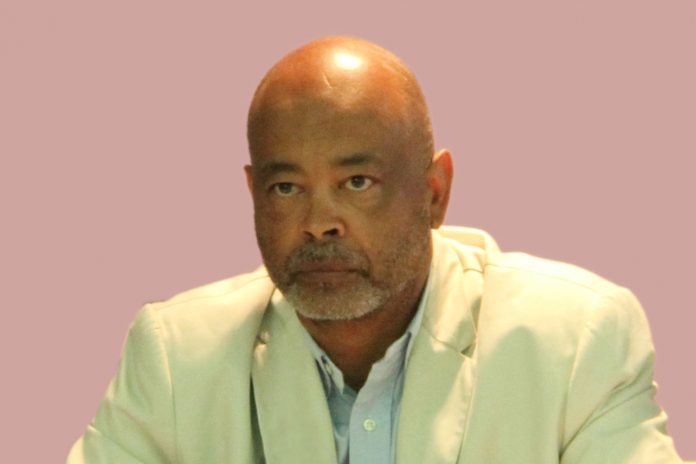
Another eventful week around the world… Mugabe in house arrest!! Our own Sheik Amoudi in ‘Ritz Carlton Jail’, accused of corruption and fraud…What a shock … The brave Sheik may lose all his hard earned savings.
Who would have thought Prime Minister Hailemariam would take this case to the Saudi king. Better to think and pray for him… No?
But hey, this is only the beginning, not the end. That’s still ahead!
Meanwhile today we take a look at Hawassa. A safer topic! More for brainstorming than anything else!
You would agree that the city of Hawassa is one of Ethiopia’s most popular and frequented local tourist destinations. The city is described as cute, entertaining, laid-back, and growing. Indeed, growing it is, and both residents and visitors like to talk about it. Not of the city’s ‘landmarks’, it hasn’t any. Nor of its uniform street grid system, that’s not there either. Not even because rent is low, that’s definitely not the case, or that Hawies live longer than the national average, not proven!! In fact people like to talk about Hawassa because it has been going through a continuous ‘boom’, and is still transforming itself into something we don’t really know.
Now, assuming Hawassa wants to transform itself into a modern, dynamic city… a first class city. Here are five free tips to consider. Many of these are already at work in many countries, most in plain sight.
In parenthesis – These ideas do not aim to restructure the political life of Hawassa or the region, or get to the deeper policy issues that may be driving long-term economic and social trends. Nonetheless, by repudiating the myth of the “big fix” and focusing on small, achievable goals, they serve as an example of how municipality leaders, together with ordinary citizens can take control of the fate of their city without waiting for top-down solutions from ‘higher’ government authorities.
Obviously, residents and municipal authorities of Hawassa should have a vision of what their city should look like say, 10 years from now. If they don’t have any idea, it means they seem ready to put up with anything – architectural, economical, social, political… you name it.
Anyway here are my unsolicited tips – five to be exact…. which by the way don’t require any extra funding but only citizens’ engagement. These tips are put together indiscriminately, no particular order or priority being observed.
1. The economics: Hawassa today faces big challenges: managing growth, improving livability, becoming more sustainable and making city living far more affordable. To address these issues it needs to welcome business and entrepreneurship, support residents to create their own jobs and local businesses; do away with excessive regulations for startups; encourage and attract conventional and digital cottage industries, tech-entrepreneurs, artists and fashion designers etc.. Yes, city leaders should identify Hawassa’s own unique entrepreneurial talent – find it, maximize it, and retain it. How can a city create wealth, if it puts all kind of barriers for young startups?
In all this, housing is key. To keep and attract the right people, Hawassa needs to develop policies that promote affordable housing. When rentals and real estate are too expensive, fewer people buy homes, construction slows and jobs dry up. Hawassa should start improving the bureaucracy of the land markets as an important policy tool for land reallocation; sell city owned land to private investors who have the capital to fund major urban development and upgrade infrastructure; impose property tax as an alternative financing source to pay for this ambitious plan and other developments. Ultimately understanding the revenue raising possibilities of the city and putting a plan to mobilize resources is where to start. Local financial sources should be key for the development of Hawassa.
2. Branding Hawassa. Branding is a relatively new approach toward urban development of sustainable cities. City branding improves marketing of the city image in various ways by converting the visual image of the city into a brand image. Unique characteristics of the city are featured and a sustainable urban image is created. Hawassa can today compete against other Ethiopian or African cities if it positions itself as an attractive place for, say, knowledge workers (leveraging the Hawassa University), industrial firms (leveraging the I-Park), cultural and entertainment events [Fichee-Chambalaalla, Timket, Meskel, Eid al-Fitr etc.], and promote itself as a city best placed to enjoy one of the most beautiful lakes of the Rift Valley (Today the lake is hidden from view).
3. Let me continue with the outdoors. Did you notice there is very little choice for Hawi residents to get out and do things? Did you notice there are no functional public parks…let me put a qualifier: ‘attractive’ public parks to enjoy or exercise! No magnificent views of public art? No open squares or center of communities where one can go people-watch or meet incredibly interesting and cultured individuals? No water sport on the lake; in fact there are no sporting facilities serving the community and forming part of the social fabric.
To change this image, Hawassa should, say, consider launching an international competition inviting proposals [including from the Diaspora] to develop or exploit dozens of sites dispersed across the city that can be booked by clubs, community groups, schools, and personal trainers to conduct events, gatherings, and competitions.
4. Hawassa has the opportunity to become Africa’s leader in low-carbon urban development by building the city in a coordinated way, lowering the distance between residents and work opportunities, making service delivery more efficient, bringing nature into the city in a very deliberate manner – from the small and experimental (citizen-initiated urban gardens on unused land) to the radical and top-down city planning experiments with appropriately placed mini-parks with plants and seating, perhaps even make ‘Amora Gedel’ the best botanic garden of the country? Making Hawassa a city in a garden.
On city transport, one notices the absence of bicycles in Hawassa. And yet studies show that the more cars on the road, the more challenges a city faces. Look at Addis Ababa, it has experienced increased car ownership in recent years… Results? More road fatalities, traffic congestion, longer commuting times, and air pollution. Despite these risks, Hawassa is decidedly car-centric and rely on private vehicles or ‘Bajaj’ or motorcycle for almost all urban trips, whether or not these are the most efficient or convenient option. Creating safer, more sustainable cities means designing them to move people, not cars. Hawassa can be one of the best cycling cities in Africa; biking can be the most obvious choice because it is an easy, quick and inexpensive way to get around. In fact, everyone in Hawassa should go around on bikes –students, parents with their children, businessmen as well as senior citizens. It’s good for health!
So yes, tomorrow’s Hawassa should require buildings and individual houses to be green, insist for comprehensive recycling and composting programs, educate its citizen about green practices, facilitate farmers markets or music festivals, say, with solar powered stages. Tomorrow’s Hawassa should be about open government, where at least 10% of its annual budget would be opened up to popular vote.
5. And last but not least, get rid of corruption. Any ambition for urban development — from creating inclusive, resilient, green, healthy, just, smart or livable cities – can succeed only when corruption is tackled effectively. Endemic corruption typically feeds on a vicious, self-reinforcing circle. Citizen are resigned to thinking that nothing can be done about it and fail to report corruption, thus creating a culture of impunity that emboldens the corrupt and further entrenches mistrust and disengagement in government.
In the immediate period raising public awareness about the dismal consequences of corruption and offering easier ways to report it can make a big difference. However, this process needs to be aligned with a commitment by the political leadership to root out corruption, instill a sense of professional ethics, and recruit and promote civil servants on the basis of merit and integrity.
At the same time, should find a way to collaborate with the Ethiopian Telecom on how to expand its connectivity infrastructure, incentivize the private sector to lead connectivity projects and introduce new tools, technologies and partnerships to assist in devising integrity policies and collective action. “Open cities” initiatives, for example, use of ICTs on many levels to enhance the transparency of local bureaucracies, from land request application, to budget tracking to ID issuance.
It’s hard to believe, but the one secret to make all these happen, boils down to: DECISIONS!
• Should Hawassa city authorities reward citizens for sorting out the waste in a proper manner?
• Should it (hawassa) give generous incentives to IT and environmental technology firms making Hawassa their home?
• Should it mobilize the youth to adopt a park?
• Should it establish a One-Stop for Business centers to provide free assistance and resources for small and medium-sized businesses looking to open or expand?
• Should it introduce zonal restrictions? etc.
The answers to these questions are easy. But having the willpower to act on them isn’t. So all of you government leaders – wouldn’t you like to liberate the leader in everyone in your city, wouldn’t you want to enable those ordinary people around you to achieve extra-ordinary things?
DECIDE!
Source: Capital Ethiopia Newspaper
By: Kebour Ghenna
